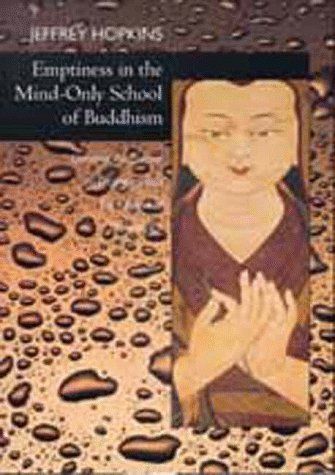
Emptiness in the Mind-only School of Buddhism
Dzong-ka-ba's (1357-1419) The Essence of Eloquence is the one book on wisdom that the Dalai Lama carries with him wherever he goes. Composed by Tibet's great yogi-scholar and founder of the Ge-luk-ba school, it stands as a landmark in Buddhist philosophy. In this first of a three-volume series, Jeffrey Hopkins focuses on how the conflict between appearance and reality is presented in the Mind-Only, or Yogic Practice, School. The Essence of Eloquence is so rich that for the last six centuries numerous Tibetan and Mongolian scholars have been drawn into a dynamic process of both finding and creating consistency in Dzong-ka-ba's often terse and cryptic tract. Hopkins makes extensive use of these commentaries to annotate the translation. Included are historical and doctrinal introductions and a critical edition of the text, as well as a lengthy synopsis to aid the general reader. Specialists and nonspecialists alike will find this important book indispensable. Dzong-ka-ba's (1357-1419) The Essence of Eloquence is the one book on wisdom that the Dalai Lama carries with him wherever he goes. Composed by Tibet's great yogi-scholar and founder of the Ge-luk-ba school, it stands as a landmark in Buddhist philosophy. In this first of a three-volume series, Jeffrey Hopkins focuses on how the conflict between appearance and reality is presented in the Mind-Only, or Yogic Practice, School. The Essence of Eloquence is so rich that for the last six centuries numerous Tibetan and Mongolian scholars have been drawn into a dynamic process of both finding and creating consistency in Dzong-ka-ba's often terse and cryptic tract. Hopkins makes extensive use of these commentaries to annotate the translation. Included are historical and doctrinal introductions and a critical edition of the text, as well as a lengthy synopsis to aid the general reader. Specialists and nonspecialists alike will find this important book indispensable.